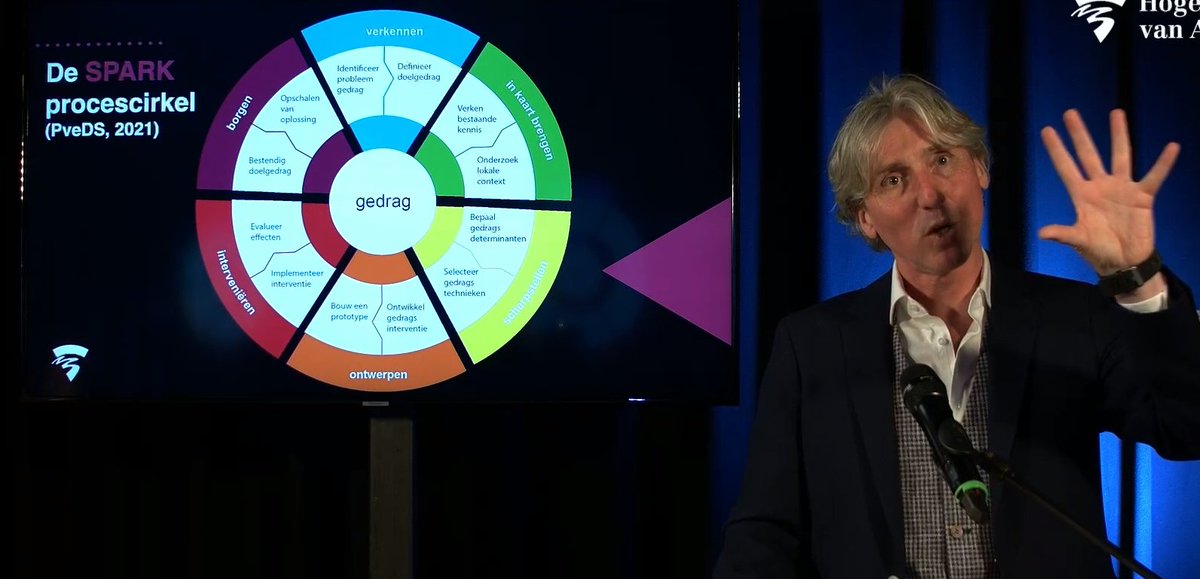
Livetweeting the inaugural lecture of my pal @ReintJanRenes of the @HvA about "the climate split".
He's an expert in behavior and climate and important researcher in 'my' NEONresearch.nl.
He starts with a round table with the rector of the HvA, and @helgavanleur and...
He's an expert in behavior and climate and important researcher in 'my' NEONresearch.nl.
He starts with a round table with the rector of the HvA, and @helgavanleur and...

Amsterdam councilor or sustainability @mvdoorninck explains her run in with NIMBY and windmills. Love that she says this is the biggest transition since the industrial revolution. Agree 100%. And of course the point that everybody must have a say in this enormous transition. 

More information in the booklet that I will link to later
What he WILL tell:
Why climate is important?
Why behavior is important?
Why changing behavior is so hard?
What can we (and @ReintJanRenes and his group) and do about it.
What he WILL tell:
Why climate is important?
Why behavior is important?
Why changing behavior is so hard?
What can we (and @ReintJanRenes and his group) and do about it.

Personal choices are (directly and indirectly) responsible for 84% of emissions.
So we should not say Shell has to solve it. We have to solve it together.
So we should not say Shell has to solve it. We have to solve it together.

3) It can be hard if you feel it's not about you
4) The time horizon (the long and winding road) is long
5) It's abstract. You can't see CO2 and it's all so far away.

4) The time horizon (the long and winding road) is long
5) It's abstract. You can't see CO2 and it's all so far away.


What can we do? For action we need
- capacity (that we have time to think about it etc.)
- motivation (why is it useful? who am I? etc.)
- occasion (social influence, rules/regulation, etc.)
Often this is not yet part of policy.
- capacity (that we have time to think about it etc.)
- motivation (why is it useful? who am I? etc.)
- occasion (social influence, rules/regulation, etc.)
Often this is not yet part of policy.

They work with the spark circle (not to be confused with my sparkcity model ;-)
This is going to fast for me but it's similar to the Deming quality circle but more specified for research into behavior. And this leads to specific interventions that work.
This is going to fast for me but it's similar to the Deming quality circle but more specified for research into behavior. And this leads to specific interventions that work.

The entire team of the electorate. Milan and Helena are working for NEONresearch.nl with the other PhD students. 

He is mentioning me as the person that got him to join NEON! I did not expect that. Back at ya @ReintJanRenes ! Really look forward to our collaboration and combining technology and behavior to create really useful pathways to sustainability. 

Thanking all the people and organisations that brought him to this historical moment. I'm (Auke) am often thinking we are all standing on the shoulders of giants and our institutions that we build over the year. The End. 



A link to the booklet (in Dutch) with a lot of theory but a simple conclusion: preaching won't work and we can only create this transition if we acknowledge the worldview of others and honestly try to understand what drives *them*. hva.nl/content/evenem… 

• • •
Missing some Tweet in this thread? You can try to
force a refresh










